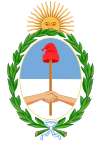
José Luis Cabezas was an Argentine news photographer and reporter who worked for Noticias, a leading local newsmagazine. Cabezas gained notoriety after he was kidnapped and killed by people hired by Alfredo Yabrán in retaliation for having taken a photo of him in Pinamar –a seaside resort in Atlantic Coast– in February 1996. The photo, which displayed Yabrán and his wife, was published on the cover of Noticias magazine in March 1996, unveiling Yabrán's face to public.
Inteligencia de la Policía Bonaerense is an internal intelligence agency of Argentina. It is the intelligence service of the police of Buenos Aires Province, and it is controlled by the Ministry of the Interior.

The Argentine Federal Police is the national civil police force of the Argentine federal government. The PFA has detachments throughout the country. Until January 1, 2017, it also acted as the local law enforcement agency in the capital, Buenos Aires.

The Buenos Aires Provincial Police is the police service responsible for policing the Province of Buenos Aires, in Argentina.

Carlos Ernesto Soria was an Argentine lawyer and Justicialist Party politician. He died in the early hours of January 1, 2012, from a gunshot wound, at his farm, after the New Year celebrations. Soria was the governor of Rio Negro Province at the time. His widow was charged with first-degree murder on January 19, 2012.
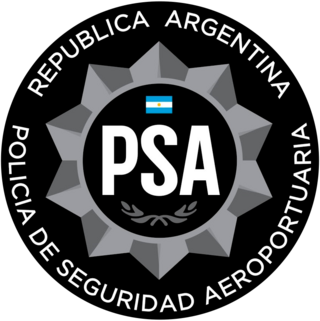
The Policía de Seguridad Aeroportuaria is an Argentine law enforcement agency created to protect and guard national public airports. It was the first federally owned police institution, managed by civilians, to be created after Argentina's return to democracy in 1983.
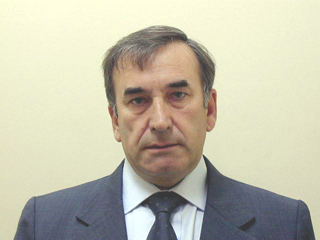
Luis Abelardo Patti is an Argentine politician and a former senior police officer, convicted of involvement in torture and murder during the 1970s. He is leader of the conservative Federalist Union Party.
The history of human rights in Argentina is affected by the Dirty War and its aftermath. The Dirty War, a civic-military dictatorship comprising state-sponsored violence against Argentine citizenry from roughly 1976 to 1983, carried out primarily by Jorge Rafael Videla's military government. However, the human rights situation in Argentina has improved since.
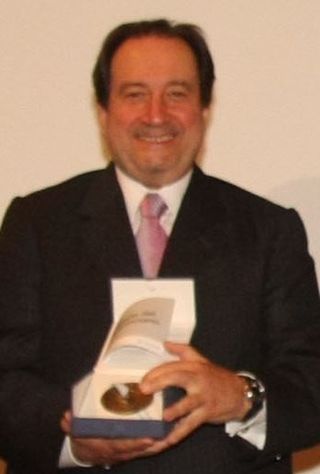
León Arslanián is an Argentine lawyer, jurist and public official who notably served as Chief Justice in the tribunal that presided over the 1985 Trial of the Juntas.

Corruption in Argentina remains a serious problem. Argentina has long suffered from widespread and endemic corruption. Corruption remains a serious problem in the public and private sector even though the legal and institutional framework combating corruption is strong in Argentina.

Laura Alonso is an Argentine politician who served as head of the Anti-Corruption Bureau of Argentina from 2015 to 2019 during the presidency of Mauricio Macri. She also served as member of the Chamber of Deputies from 2009 to 2015. Previously, she was Executive Director of Poder Ciudadano, the Argentine chapter of Transparency International.
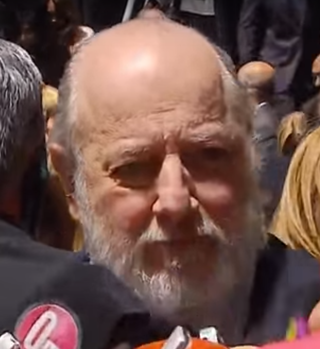
Claudio Bonadio was an Argentine judge, who was in charge of Federal Criminal and Correctional Court No. 11 since 1994. In that role he intervened in causes of strong impact, some of which involved important government officials and politicians since his appointment, among other causes of high impact on public opinion, including former Presidents of Argentina Fernando de la Rúa, Néstor Kirchner and Cristina Fernández de Kirchner.
Luis Armando Espinoza, a 31-year-old Argentinian citizen, died during a police raid in the northern province of Tucumán, Argentina, in the context of the COVID-19 pandemic lockdown in the country.
Facundo Astudillo Castro was an Argentine citizen who went missing after being stopped by the police during the COVID-19 pandemic strict lockdowns in Argentina. He was hitchhiking from Pedro Luro to Bahía Blanca, when in the town entrance of Mayor Buratovich was stopped in a police checkpoint of circulation permits. His last known image, taken the day of disappearance, depicts him being held by the police for violating the lockdown, with his hands against the police vehicle number RO 23360. It was cataloged by the victim family as a Forced disappearance in hands of the Buenos Aires Provincial Police. This theory was also followed by human rights activist Estela de Carlotto. Nora Cortiñas, another known activist in Argentina, demanded the resignation of Sergio Berni, the Buenos Aires Province Minister of Security. The minister considered this an irresponsible request.
The 2020 COVID-19 pandemic in Argentina affected the human rights situation in the country.
The Revolutionary Cells were an urban guerrilla group created in mid-2009 in the metropolitan area of Buenos Aires, being responsible for several arson attacks and explosive attacks against government buildings, transnational offices and "bourgeois structures".
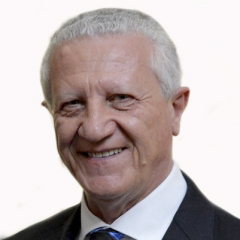
Jorge Emilio Sarghini is an Argentine economist and politician. Historically a member of the Justicialist Party, Sarghini has served in a number of political posts throughout his career, most notably as a member and president of the Buenos Aires Province Chamber of Deputies, as Minister of Economy of Buenos Aires Province during the successive administrations of Eduardo Duhalde and Carlos Ruckauf, and briefly as Secretary of Communications during Duhalde's interim presidency in 2002.















